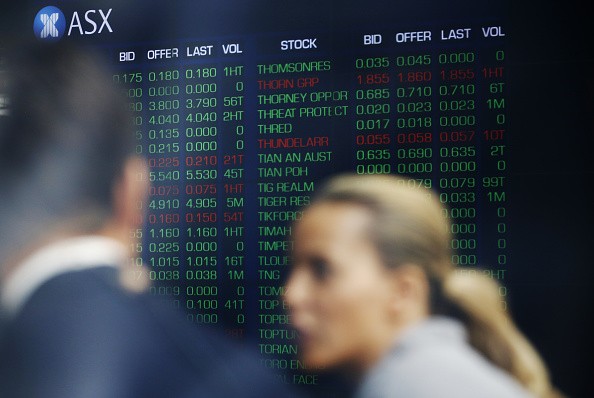Positive figures from China's economic data may help boost the Australian Stock Exchange (ASX), although commodities are expected to open at a low level, the Australian Financial Review said.
Commodities trading at the ASX dropped 15 points on April 17 as the Australian dollar rate fell overnight from $76.11 to the U.S. dollar to $75.87.
But the exact reading could not be made as the European markets, including the London Metal Exchange, were closed for a four-day Easter break. On Wall Street, stocks were higher but the trading volume was low. The three benchmarks, however, rose 0.9 percent on April 18.
Metal stocks trading moved as iron ore slid 3.5 percent to $66.25 per ton. The slide occurred as Chinese steel and iron ore futures continued its withdrawal, with reports that Chinese steel mills made record productions in March, causing fears of supply overcapacity.
Since May last year, iron ore and steel stocks have not been performing well in the market.
On April 14, inventory of iron ore in 46 Chinese ports reached about 130.40 million tons, down 0.95 million tons or 0.7 percent lower than last week's, the latest SteelHome survey showed.
Out of the stocks, about 42.8 million tons (32.8 percent) were attributed to traders. The stocks were made of about 16.6 million tons (12.7 percent) of lump, 2.45 million tons (1.9 percent) of pellet and 7 million tons (5.4 percent) of concentrate fines.
According to SteelHome, the iron ore supplies at the port can last 42.8 days, as it decreased 0.3 day since April 7, while Chinese steel companies continue with their production.
Meanwhile, U.S. shares suffered from a three-day losing streak as investors turned away from the first-quarter earnings and also ignored geopolitical concerns such as the tension in North Korea.
The incoming earnings season will show if companies in the U.S. market are worthy of their valuations, considering an expected post-election rally.




























